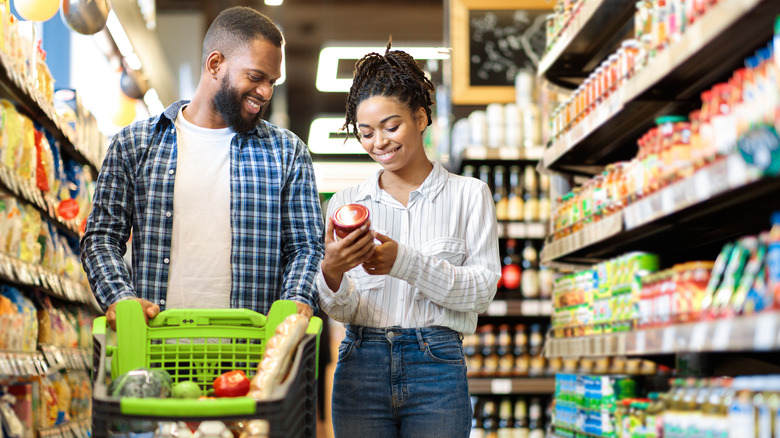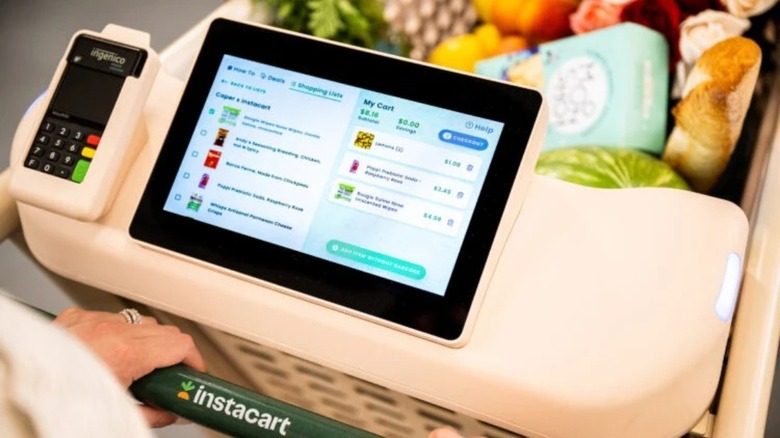Instacart's New Focus Will Be On In-Store Shopping
A lot has happened for Instacart during the past decade, which is exactly how long the company has existed. Instacart was born as a company in San Francisco in 2012, with its three founders — Apoorva Mehta, Brandon Leonardo, and Max Mullen — pioneering a modernized version of grocery delivery, per the company's website. As The New York Times notes, Instacart's simple and convenient model essentially lets customers shop online or via the company's app, which showcases goods from participating stores, before independently-contracted shoppers pick up the groceries and deliver them.
Instacart had success with the model from the start, forging a key partnership with Costco in 2017, per Supermarket News, and Sam's Club in 2018 (via Reuters). But it was the coronavirus pandemic that led to an explosion in revenues for Instacart. According to The New York Times, the amount of orders went up by 500% in 2020, and the company's value spiked to $39 billion, as compared to $7.9 billion pre-pandemic. By March 2022, however, CNBC reported that its value had been reassessed at $24 billion. A combination of factors — notably, improving pandemic conditions, inflation, and increased competition — contributed to Instacart's precipitous drop in value.
The company remains financially sound, per CNBC, but some tweaks to the business model have been expected since Fidji Simo took over as CEO in July, replacing Apoorva Mehta. Now, courtesy of a recent press release from Instacart, we can finally see what new changes are coming.
Instacart adds in-store innovations
Instacart recently announced, via press release, that it's opening what it calls "Connected Stores," a concept that incorporates the company's traditional online ordering but with a new focus on the in-store experience. As part of the rollout, Instacart has introduced six new technological innovations that will help to upgrade and personalize in-store shopping. The first "Connected Store" will open within months at a Bristol Farms location in Irvine, California, where Instacart is premiering its concept in partnership with Good Food Holdings.
"We believe the future of grocery won't be about choosing between shopping online and in-store — consumers are going to do both," noted Instacart CEO Fidji Simo. "The launch of Connected Stores is another exciting step for Instacart as we partner with retailers to help invent the future of grocery. Through these technologies, we can now offer consumers the best of online shopping inside physical stores, and vice-versa."
Artificial intelligence-equipped Caper carts headline the six in-store innovations. The carts are outfitted with state-of-the-art features like scales, sensors, and touchscreens, the press release shared. This, in coordination with Scan & Pay technology, means shoppers can avoid checkout lines, paying instead via their smartphones. Other innovations include an import your shopping list feature, and Carrot Tags that light up items' shelf labels, making them easier to locate. Two other innovations, Foodstorm Department Orders and Out of Stock Insights, meanwhile, will help store owners manage orders and inventory.

